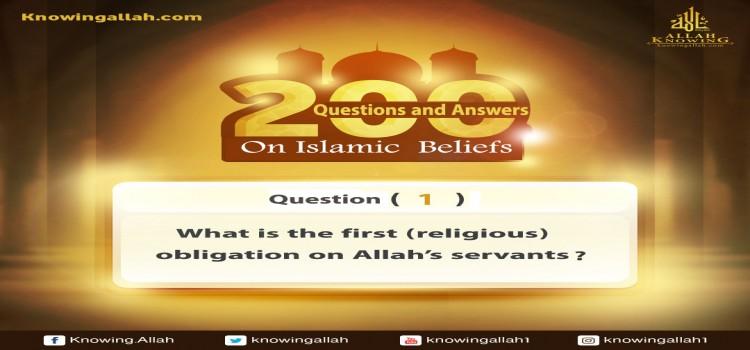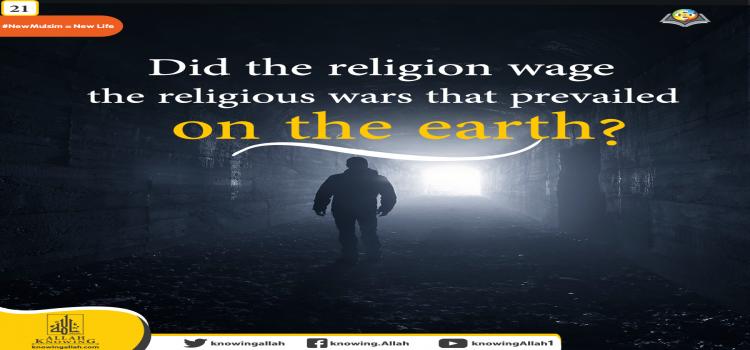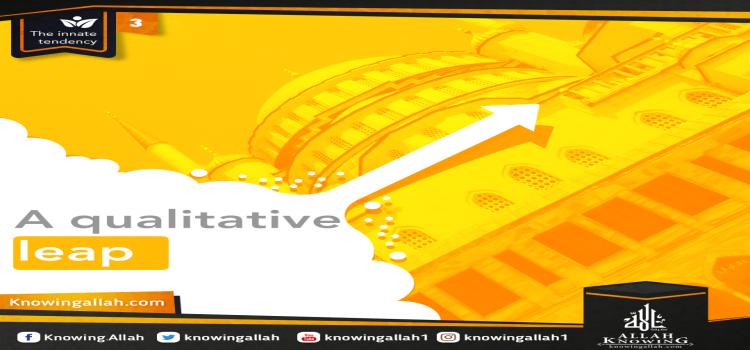The Religious Institutions and Modern Challenges
The Religious Institutions and Modern Challenges
Answers to various questions about the religious institutions: their nature, relevancy, impact and fate.
All praise be to Allah, and may His Blessings and Peace be on His Last Messenger, (peace and blessings of Allah be upon him)
The theory of secularization is based on certain premises, which include a certain degree of indifference to the religious institutions, if not religion in principle. It also claims, those institutions have, more than ever, become differentiated from the modern secular societies.
The proponents of this theory aim at compartmentalizing the religion within certain institutions, which are subsequently compartmentalized into certain areas of personal life. According to this theory, those religious convictions, are not to cross the bounds set for them and venture into public life or even contribute to shaping people’s political orientations or world views.
Apparently, the theory is failing, and it is quite felt all over the world that religion still rules over a large section of people’s collective awareness and intellectual constitution.
It is time for an introspective analysis of the various impacts of those religious institutions on humanity. In the following answers to a group of questions submitted to Islam-on-Line, I will attempt to do that, with a focus on Islam, since I don’t claim to be an expert in any other religion.
What is the nature of the religious institution in Islam?
First, is there a religious institution in Islam? The answer can’t be a simple yes or no, but rather an explanation of what may be considered a religious institution. However, before I begin my exposition of its nature, if you have already started to think of a central command and subordinate branches, or a rigid hierarchy, you have gone too far.
This religious institution is not one entity nor is it uni-faceted. It is not completely discernable from the daily religious practice of the public either. In the beginning of Islamic history, the religious institution, which evolved gradually, was in the form of a state that showed deference to the divine law, judges who ruled by the Shari’a, and a magnificent network of interconnected scholars who were collectively able to provide a degree of consistency and a reasonably definable Islamic orthodoxy.
They paved the way for their followers by formulating disciplines such as the Principles of Jurisprudence, which lays down the parameters of juridical deduction; and Historiography, to determine the validity of reports. The public can never be excluded from this institution because no one needed to be ordained to be listened to; the greatest successors of the Messenger of Allah (peace and blessings be upon him) stood to be corrected by any Muslim, men and women alike.
The people ascended through the abstract ranks of this institution based on merit and qualification. Those ranks are judged largely via public perception. And if in the current reality, the state hires some scholars to issue fatwas (scholarly edicts) in matters of public importance, those scholars, who may or may not be influenced by the state, don’t gain much public acceptance on the premise of being selected for those positions.
There is no distinction between the “men of God” and the “men of this world” in Islam. All are supposed to be of this world serving the cause of Allah. This understanding protected the religion from being regarded by the public as property of the clergy. All Muslims feel responsible for the religion, which equally belongs to all of them.
This, also, was conducive to bringing down the barriers between the “clergy” and the public. In other words, the Muslim scholars are part of the public, of which many aspire to attain scholarly knowledge. That knowledge was always accessible by all. Teaching took place in the mosques, and any by passer was welcome to join the classes and learn. Omar Ibn Abdul ‘Azeez (Allah be pleased with him,) one of the righteous caliphs, said to his viceroy in al-Madeenah, “Spread the knowledge, and sit down to teach, until he who doesn’t know knows, for knowledge will fade away only when it becomes secretive.”[1]
Upholding the principle of the right to knowledge, the second generation of Muslims saw the rise of an enormous number of the emancipated slaves to the top ranks of this religious institution. The extent of this made many historians label this ere, “The Era of the Emancipated Slaves.”
After the Messenger of Allah (peace and blessings be upon him), no one is considered the ultimate head of this institution, whose positions are not contestable. In fact, during the reign of Abu Bakr, the second greatest after the Prophet, and his first successor (may Allah be pleased with him), several of his positions were challenged, and he yielded to the contenders in many cases. This shows that the Islamic system of governance has nothing to do with theocracy. No one speaks on behalf of God.
Thus, in the Islamic history of juristic disagreement, the position that prevailed is that which is supported, not only by the text, but also by reason. That is why the scholars paid attention to disciplines such as the science of dialectics (`ilm al jadal), which is about advancing one’s argument, and enabling him/her to best use the textual or rational evidence to validate their positions.
The Shari’a allowed human diversity and encouraged discourse. Yet, there is some misunderstanding in the minds of some Muslims and non-Muslims, that the Shari’a controls every small corner of people’s individual and public lives. This is not true. Not because it is barred from any sphere of life, nor is it because any of its teachings may be neglected, but because it left enough room for human judgment and for the use of the gift of intellect endowed to humanity by God. The Shari’a provides detailed laws in the area of man’s relation with God.
However, in the areas of man’s relation with fellow men and the society, it furnishes sublime guidelines and milestones to prevent inequity and corruption. For example, Islam is generally opposed to taxes and tariffs, but there are conditions when that it is allowable. Now, how much taxes and who are the taxable categories of people and how to spend the money collected; all of these matters are subject to debate. Such debate or discussion will be steered by the Divine guidance against inequity and burdening the less fortunate, but no clear divine dictum will end the discourse.
There is an impression among some people that the religious institutions are responsible for deepening the divides among human beings; justifying violence against people from other religious background, how do you perceive these kinds of accusations?
Human beings never needed a religious reason or pretext for aggression. What is behind the transgression committed by man against his fellow human beings is rather the much hated egotism, which was condemned by all of God’s revelations to humanity, from the time of Adam, through Abraham, Moses and Jesus, and until the seal of the prophets, Muhammad, (blessings and peace be upon them all). This egotism has various manifestations, which include tribalism, ethnicism, nationalism, racism, as well as all other forms of partisanship and classism.
There is an agreement between the Muslims, Christians and Jews on the story of the two sons of Adam, Cain and Abel. They didn’t belong to different religions. It is also not a secret that the wars that had the greatest toll on the human kind, with regard to the number of casualties, and extent of destruction, are world wars I and II. These wars didn’t have the two sides divided along religious or even denominational lines; Germany and Britain were both Protestant, while Italy and France was Catholic. So, putting aside the direct reasons behind those wars, there is close to an agreement that nationalism, imperialism, militarism as well as defense alliances were the main reasons behind the two wars that harvested seventy seven million human lives.
God did sanction the use of force by the prophets, such as Abraham, Moses and Muhammad, and many others for the cause of justice, not that of aggression. After all, it is not conceivable that the evil-doers be left to control the destiny of humanity. You would disagree with a man who sees a child being raped by someone, and wouldn’t interfere to save him, even if he had to use force. However, it is to be remembered that those wars were very limited in scope compared to modern time wars.
Having said that, I must assert that the members of religious institutions are not infallible; some of them may not be aware of the true teachings of Allah. Others may have deviated from the pursuit of the pleasure of God to that of finite and illusive personal interests. In this case, it is not the religion that will incite strife, but it is probably going to be used to justify the aggression committed by this side or that.
I also have to admit that schism did take place within the Muslim nation, as much as it happened in other religious groups. However, the current diversity that we have in Muslim countries, which is not a new occurrence but a long tradition throughout the history, confirms that toleration of others without acceptance of their thoughts is possible, and did take place in reality.
The Encyclopedia Britannica agrees with this and says, “At the same time, while condemning schisms and branding dissent as heretical, Sunnism developed the opposite trend of accommodation, catholicity, and synthesis. A putative tradition of the Prophet that says “differences of opinion among my community are a blessing” was given wide currency. This principle of toleration ultimately made it possible for diverse sects and schools of thought—notwithstanding a wide range of difference in belief and practice—to recognize and coexist with each other. No group may be excluded from the community unless it itself formally renounces Islam.”[2]
Due to man’s inclinations, sometimes the belonging to a religious fraternity turns into another manifestation of tribalism. To warn against this, the Messenger of Allah (peace and blessings be upon him) said, “Give victory to your brother, whether he is the oppressor or oppressed!” When the companions wondered at the statement, he explained that if he was the oppressor, giving him victory is by stopping him from aggression.[iii] That was a declaration of the fall of all allegiances except to the Divine cause, which is one of justice and magnanimity.
www.wathakker.info
[1] Sahih Bukhari vol. 1, p 49. Dar Ibn Kathir, Al Yamamah - Beirut - 1407-1987 Edition: Third, to achieve: d. Mustafa Deb Albga.
[2] Islām. (2009). In Encyclopædia Britannica. Retrieved July 20, 2009, from Encyclopædia Britannica Online:https://www.britannica.com/EBchecked/topic/295507/Islam
[iii] Sahih Bukhari 2, p 863 - Dar Ibn Kathir and Al Yamamah - Beirut - 1407 - 987, third, to achieve: d. Mustafa Depp Albga.



